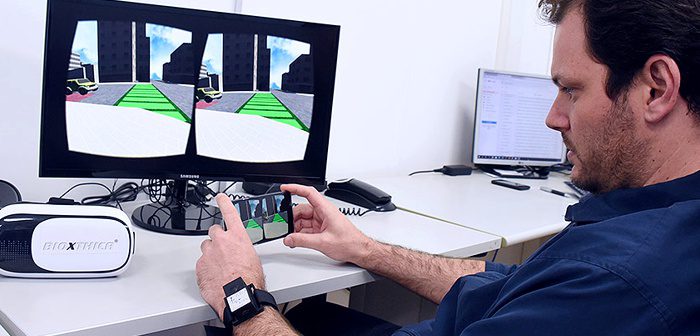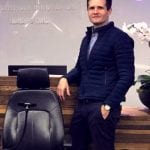We translate Unicamp´s reports on the companies Bioxthica and Hoobox, CEPID BRAINN´s spin-off research projects.
In a report about entrepreneurship within Universities, the Unicamp Journal highlighted the successes of two daughter companies of CEPID BRAINN. Bioxthica develops solutions in the area of neuroreabilitation and Hoobox operates in the area of robotics and artificial intelligence. Check out below an exclusive translation of article and follow the link at the end of the text to read the full report (in Portuguese).
The following excerpt was originally published on September 18, 2018 in the Jornal da Unicamp.
Preincubation
Incamp [Unicamp´s new businesses incubator] also offers a pre-incubation program. “For a period of one year, it’s a stage to validate an idea or a project, to check if it’s feasible to assemble a prototype or if the business is indeed promising,” explains Mariana Zanatta. Bioxthica is one of the companies that has gone through this stage. Today, already incubated, the company develops solutions in the area of neurorehabilitation based on virtual reality. “When a patient suffers a stroke, there are injuries to the brain that compromise the person’s movement. Our expectation with this technology is to stimulate new areas of the brain to relearn that lost movement”, explains Alexandre Brandão, founding partner of Bioxthica.
The company is a spin-off of one of the Centers for Research, Innovation and Diffusion (Cepid), of FAPESP, the Research Institute on Neuroscience and Neurotechnology (Brainn). In one of the applications of the technology now in development in the company, sensors fixed in the legs of a patient send signals to a controller card when it makes a walking movement. The board, then, connects to a virtual reality environment through special glasses. “The user visualizes an environment that simulates a city with buildings, streets, vehicles, street lanes, etc. and that responds to the actions of this user. This allows a limited movement of a patient to be reproduced as a complete movement. In the virtual environment, the patient visualizes the perfect movement and not limited one”, explains Brandão. “Interactivity in the virtual environment can accelerate patient recovery, stimulating new areas of the brain to take charge of these movements,” he adds.
According to Brandão, the idea is that the new product will be in the market in the medium term, targeting the professionals who works with rehabilitation. “Our challenge now is to come up with an affordable product. I strongly believe in the potential of having a safe and non-invasive method [to help patients in motor rehabilitation], which can have an important impact both in the recovery of patients with impaired mobility and also for the caregivers, “says Brandão.
In addition to Incamp, the company received funds from Sebrae and the Brazilian Enterprise for Research and Industrial Innovation (Emprapii), from CPqD (which is a unit of Emprapii). Bioxthica is also investing in a new design of a wearable device to collect vital signs of patients, in partnership with the company Monitora Soluções Tecnológicas.
Artificial intelligence
Another company that emerged in Brainn was Hoobox, which operates in the area of robotics and artificial intelligence. Incubated since last year [at Unicamp´s Incamp], the startup has created Wheelie, the world’s first computer program capable of translating facial expressions into commands to control a wheelchair and computers. “The technology eliminates the use of body sensors and any type of training”, said engineer Claudio Pinheiro, one of the founders of the company. “I’ve always wanted my research at the University to be a product that impacts people’s lives. For me, this is a way of rewarding the investment that society makes in the public university”, reveals Pinheiro.
Hoobox combines the founders’ entrepreneurial profile with leading-edge research conducted at Unicamp. “We have a very close relationship with the University. Our collaborators are masters and doctoral students who have the experience of research and, at the same time, the experience of working in a startup. We also maintain close contact with teachers because they are the bridge between academia and knowledge, which is the basis of our business”, says Pinheiro. According to him, it was the training at Incamp that enabled the company to elect its market of action: American war veterans for wheelchair mobility technology.
Hoobox already has an office in Houston, Texas, in partnership with Johnson & Johnson’s – the US pharmaceuticals and personal care giant – Laboratory of Innovation. The company’s potential also caught the eye of Albert Einstein Hospital, the largest hospital in Latin America, which has become an investor partner. “Those are environments that bring important benefits to our development: at Einstein we have contact with the hospital environment and with doctors that enable crucial tests in our area of operation. In the United States, we have expanded our knowledge about the health market “, says Pinheiro.
Read the full report at Jornal da Unicamp (in Portuguese)
Website: www.hoo-box.com










 Português do Brasil
Português do Brasil